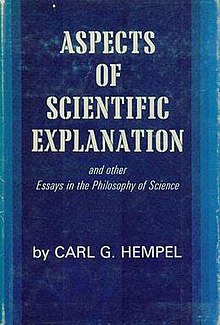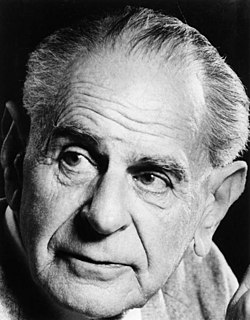
Sir Karl Raimund Popper was an Austrian-British philosopher, academic and social commentator.
Logical positivism, later called logical empiricism, and both of which together are also known as neopositivism, was a movement in Western philosophy whose central thesis was the verification principle. This theory of knowledge asserted that only statements verifiable through direct observation or logical proof are meaningful. Starting in the late 1920s, groups of philosophers, scientists, and mathematicians formed the Berlin Circle and the Vienna Circle, which, in these two cities, would propound the ideas of logical positivism.

Philosophy of science is a branch of philosophy concerned with the foundations, methods, and implications of science. The central questions of this study concern what qualifies as science, the reliability of scientific theories, and the ultimate purpose of science. This discipline overlaps with metaphysics, ontology, and epistemology, for example, when it explores the relationship between science and truth. Philosophy of science focuses on metaphysical, epistemic and semantic aspects of science. Ethical issues such as bioethics and scientific misconduct are often considered ethics or science studies rather than philosophy of science.

Rudolf Carnap was a German-language philosopher who was active in Europe before 1935 and in the United States thereafter. He was a major member of the Vienna Circle and an advocate of logical positivism. He is considered "one of the giants among twentieth-century philosophers."

The Logic of Scientific Discovery is a 1959 book about the philosophy of science by the philosopher Karl Popper. Popper rewrote his book in English from the 1934 German original, titled Logik der Forschung. Zur Erkenntnistheorie der modernen Naturwissenschaft, which literally translates as, "Logic of Research: On the Epistemology of Modern Natural Science"'.
Scientific realism is the view that the universe described by science is real regardless of how it may be interpreted.
Peter Achinstein is an American philosopher of science at Johns Hopkins University.
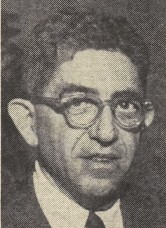
Ernest Nagel was an American philosopher of science. Along with Rudolf Carnap, Hans Reichenbach, and Carl Hempel, he is sometimes seen as one of the major figures of the logical positivist movement. His 1961 book The Structure of Science is considered a foundational work in the logic of scientific explanation.
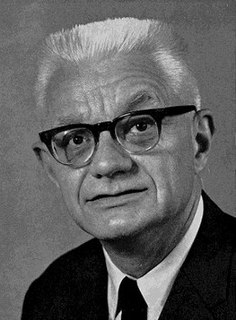
Carl Gustav "Peter" Hempel was a German writer and philosopher. He was a major figure in logical empiricism, a 20th-century movement in the philosophy of science. He is especially well known for his articulation of the deductive-nomological model of scientific explanation, which was considered the "standard model" of scientific explanation during the 1950s and 1960s. He is also known for the raven paradox.

Hans Reichenbach was a leading philosopher of science, educator, and proponent of logical empiricism. He was influential in the areas of science, education, and of logical empiricism. He founded the Gesellschaft für empirische Philosophie in Berlin in 1928, also known as the “Berlin Circle”. Carl Gustav Hempel, Richard von Mises, David Hilbert and Kurt Grelling all became members of the Berlin Circle.
The deductive-nomological model of scientific explanation, also known as Hempel's model, the Hempel–Oppenheim model, the Popper–Hempel model, or the covering law model, is a formal view of scientifically answering questions asking, "Why...?". The DN model poses scientific explanation as a deductive structure—that is, one where truth of its premises entails truth of its conclusion—hinged on accurate prediction or postdiction of the phenomenon to be explained.
Wesley Charles Salmon was an American philosopher of science renowned for his work on the nature of scientific explanation. He also worked on confirmation theory, trying to explicate how probability theory via inductive logic might help confirm and choose hypotheses. Yet most prominently, Salmon was a realist about causality in scientific explanation, although his realist explanation of causality drew ample criticism. Still, his books on scientific explanation itself were landmarks of the 20th century's philosophy of science, and solidified recognition of causality's important roles in scientific explanation, whereas causality itself has evaded satisfactory elucidation by anyone.
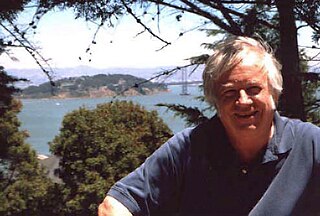
James Henry Fetzer is a former professor of the philosophy of science at the University of Minnesota Duluth and a conspiracy theorist. In the late 1970s, Fetzer worked on assessing and clarifying the forms and foundations of scientific explanation, probability in science, philosophy of mind, and philosophy of cognitive science, especially artificial intelligence and computer science.
Inductivism is the traditional, still commonplace view of scientific method to develop scientific theories. Although involving inductive reasoning, it aims to be, much more, a systematic research approach that, applied diligently, enables scientists to objectively discover the sole naturally true theory in each domain.

Joseph Agassi is an Israeli academic with contributions in logic, scientific method, and philosophy. He studied under Karl Popper and taught at the London School of Economics. He later taught at the University of Hong Kong, the University of Illinois, Boston University, and York University in Canada. He had dual appointments in the last positions with Tel Aviv University.
Michael Friedman is an American philosopher. He is currently the Frederick P. Rehmus Family Professor of Humanities at Stanford University. Friedman is best known for his work in the philosophy of science, especially on scientific explanation and the philosophy of physics, and for his historical work on Immanuel Kant. Friedman has also done important historical work on figures in Continental philosophy such as Martin Heidegger and Ernst Cassirer.

Freud and Philosophy: An Essay on Interpretation is a 1965 book about Sigmund Freud, the founder of psychoanalysis, by the French philosopher Paul Ricœur. In Freud and Philosophy, Ricœur interprets Freud's work in terms of hermeneutics, the theory of the rules that govern the interpretation of a particular text, and discusses phenomenology, a school of philosophy founded by Edmund Husserl. He addresses questions such as the nature of interpretation in psychoanalysis, the understanding of human nature to which it leads, and the relationship between Freud's interpretation of culture and other interpretations. The book was first published in France by Éditions du Seuil, and in the United States by Yale University Press.

The Structure of Science: Problems in the Logic of Scientific Explanation is a 1961 book about the philosophy of science by the philosopher Ernest Nagel, in which the author discusses the nature of scientific inquiry with reference to both natural science and social science. Nagel explores the role of reduction in scientific theories and the relationship of wholes to their parts, and also evaluates the views of philosophers such as Isaiah Berlin.

Philosophy of Natural Science is a 1966 book about the philosophy of science by the philosopher Carl Gustav Hempel.
